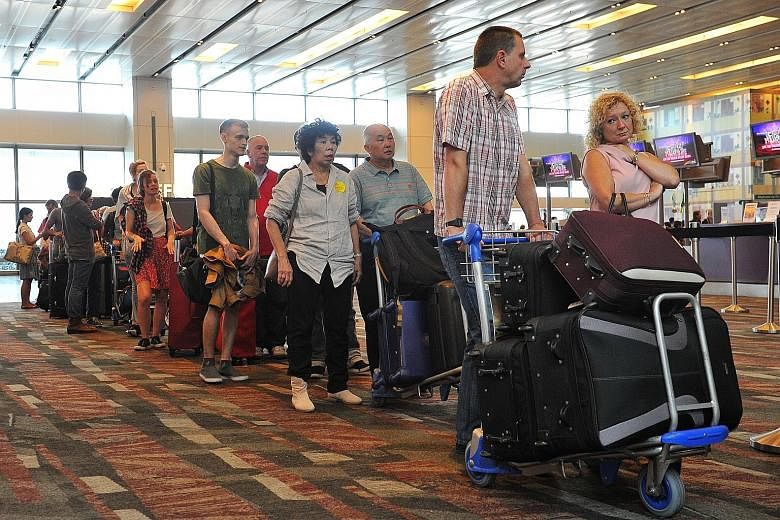Travellers can expect airfares to increase next year, despite the recent fall in oil prices, industry experts have said.
The sharpest rise is expected in the Asia-Pacific region, and Singapore will lead the pack, said a Singapore- based senior executive at travel management firm Carlson Wagonlit Travel (CWT).
Mr Carl Jones, a senior director at CWT Solutions Group, said: "We expect a 1.2 per cent increase in airfares across the Asia-Pacific and a 3 per cent jump in Singapore."
Explaining, he said: "Companies here are still travelling; there is a strong business and meetings, incentives, conventions and exhibitions (Mice) segment; and Singapore's position as a strong regional business hub also fuels demand for travel."
Depending on the demand for air travel and the number of seats that airlines offer, not all markets will be affected in the same way.
It would be interesting to see how the Aug 9 launch of Singapore Airlines' premium economy class would affect economy-class fares, said Mr Jones.
Sharing findings from a recent joint survey by CWT and the Global Business Travel Association's education and research arm, he said the fall in oil prices has not had a huge impact on airfares so far.
He said: "Oil prices have fallen by more than 50 per cent in the past year and jet fuel prices by almost 60 per cent, but this has not really translated into a corresponding decrease in air travel ticket prices.
"Ticket pricing is very much affected by capacity, and airlines have become smarter in managing their inventory and ensuring that they don't have too much capacity."
This eventually leads to higher fares if demand is strong, he said.
Dynasty Travel spokesman Alicia Seah said: "The strengthening of the Singapore dollar against several other currencies has fuelled demand for travel to markets such as Australia, Europe, New Zealand, China and Japan.
"With strong demand expected to continue and a high propensity among Singapore residents to travel, airfares might move upwards."
But there will still be good deals. She said: "With airlines competing aggressively, travellers can still look forward to special and promotional airfares from time to time, especially if they avoid peak seasons."
Businessman J.K. Wong, 52, said: "Airfares are so dynamic these days - the key is really to do your homework before you book, if you want good deals."

